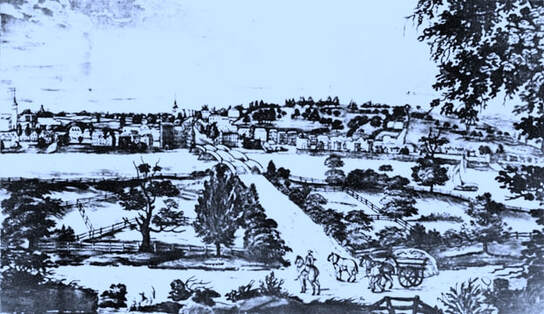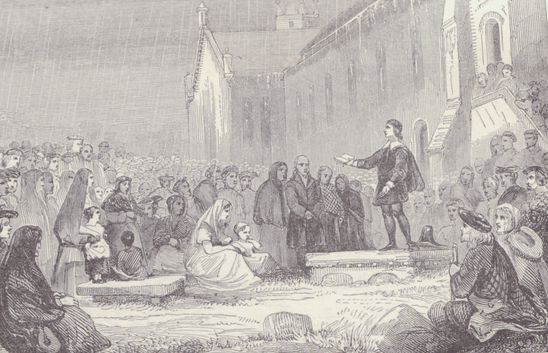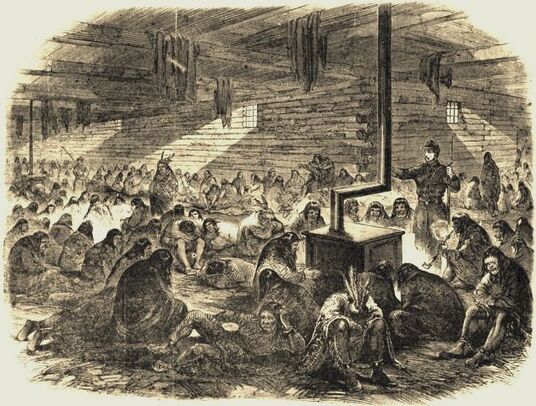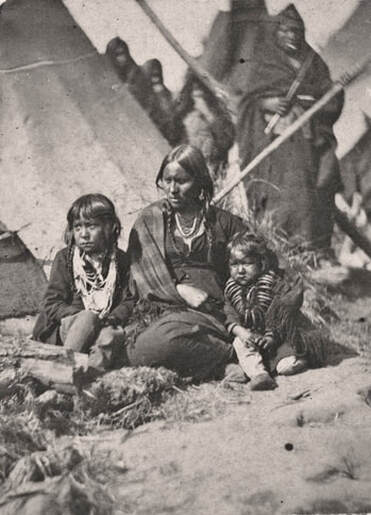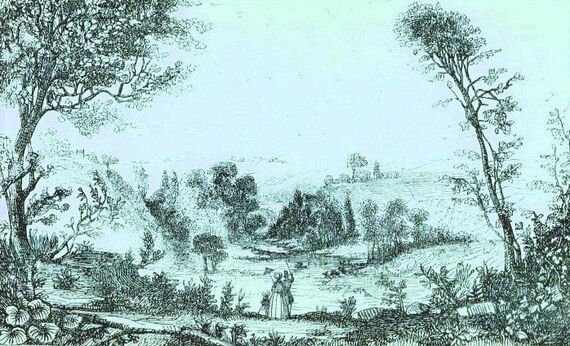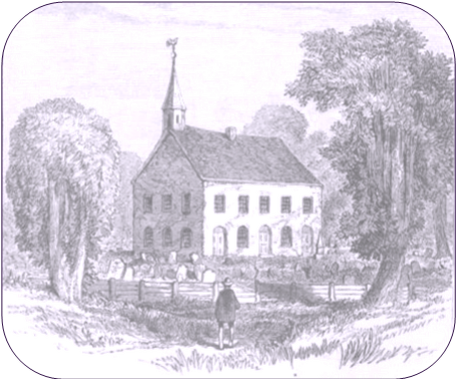Revival at Bradford
The social influences were strongly against religion. Bradford was very gay and festive. The young and old joined in frequent festivity. John Hasseltine built his house and finished it with a dance hall. The second story of that house, in the rear part, which is still standing, was devoted to amusement and dancing. It was not an uncommon thing for Parson Allen to call for his deacon to go and spend the evening at the dance hall.
|
“A revival of religion was a thing never heard of.” But in the midst of this frivolity the spirit of God came to the heart of the minister and people with great power. There were faithful men, and women especially, who were praying for God’s special blessing. The prayer was answered. . . .
Read more here.
Read more here.
The Kirk of Shotts RevivalAnd here also it is observable that the honour of originating the revival was reserved not to the minister of the parish, though a good man, but to one of those faithful servants who suffered for their nonconformity to the innovations of the time; the Lord thus signally accomplishing His word, “Them that honour me, I will honour.” . . .
The circumstances which led to this revival were the following: Some ladies of rank who had occasion to travel that way, had received civilities at different times from Mr. Hance, the minister of Shotts . . . These ladies loved the Gospel, and the persecuted ministers who were contending for its purity. . . . Read more here. |
A Nation Born in a Day
Stephen Riggs, author of the following account, was a missionary to the Sioux (Dakota) in Minnesota at the time of the Sioux Uprising of 1862 in which nearly 650 settlers - men, women, and children - and over 100 soldiers were killed.
|
. . . The Sabbath morning came. The night before, a fresh snow had fallen nearly a foot deep. Colonel Miller thought it was only humane to let the prisoners go out into the yard on that day, to breathe the fresh air. And so it was we gathered in the middle of that enclosure, and all that company of chained men stood while we sang hymns and prayed and talked of God's plan of saving men from death. To say that they listened with attention and interest would not convey the whole truth. . . . It was a good time to talk to them of sin - to tell them of their sins. It was a good time to unfold to them God's plan of saving from sin - to tell them God's own son, Jesus Christ our Lord, died to save them from their sins, if they would only believe. A marvelous work of grace was already commencing in the prison. . . .
Read more here. |
A Heavenly Visitation at Fort Snelling
. . . By gradual steps, but with overwhelming power, came the heavenly visitation. At first Mr. Williamson used to meet the former members in one of their own teepees. Presently there was an evident softening of hearts. Now news came of the awakening among the prisoners at Mankato. The teepee would not contain half the listeners, so for some time in the middle of winter the meetings were held in the campus, then in a great dark garret over a warehouse, without other fire than spiritual. In that low garret, when hundreds were crouched down among the rafters, only the glistening eyes of some of them visible in the dark, we remember how the silence was sometimes such that the fall of a pin might be heard. Many were convicted; confessions and professions were made; idols treasured for many generations with the highest reverence were thrown away by the score. They had faith no longer in their idols. They laid hold on Christ as their only hope. . . .
Read more here. |
Power Belongeth unto God
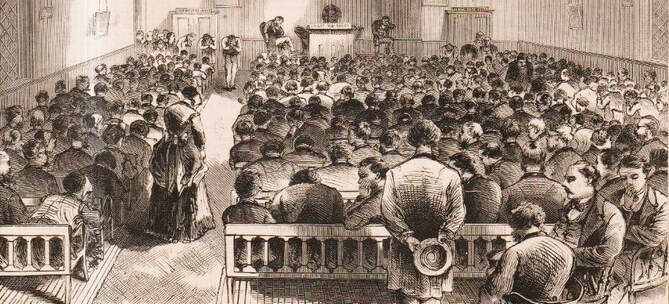
In the upper lecture-room of the “Old North Dutch Church,” in Fulton Street, New York, a solitary man was kneeling upon the floor, engaged in earnest, importunate prayer. . . . He had surveyed all the lower wards of the city as a lay-missionary of the Old Church, and he longed to do something for their salvation. He knew he could do many things – he could take tracts in his hand, any and every day, and distribute them. He could preach the gospel from door to door. All this he had done. To reach these perishing thousands, he needed a thousand lives. Could not something more effectual be done? So, day after day, and many times a day, this man was on his knees, and his constant prayer was “Lord, what wilt thou have me to do?” The oftener he prays, the more earnest he becomes. He pleads with God to show him what to do, and how to do it. . . .
Read more here.
Read more here.
All night, in the fields, the voice of prayer and praise was to be heard.
|
About this time, (June, 1742,) Mr. Whitefield revisited Scotland, and in consequence of earnest invitations, he came to the west country, and to Cambuslang amongst other places, where, with his customary zeal, he preached three times on the very day of his arrival, to a vast body of people, although he had preached the same morning at Glasgow. The last of these exercises began at nine in the evening, and continued till eleven; and such was the relish for the word of life, that Mr. McCulloch preached after him till past one in the morning, and even then the people could hardly be persuaded to depart. All night, in the fields, the voice of prayer and praise was to be heard.
Read more here. |
A Rich Display of Our Glorious Emmanuel's Grace in Subduing Multitudes of Sinners to Himself
|
The settling of this place with a gospel-ministry was owing, under God, to the agency of some Scots people, that came to it: among whom there was none so painful in this blessed undertaking as one Walter Ker, who, in the year 1685, for his faithful and conscientious adherence to God and his truth, as professed by the church of Scotland, was there apprehended, and sent into this country, under a sentence of perpetual banishment.
[But] the major part of the congregation could not be said to have so much as a name to live. Family prayer was unpracticed by all, a very few excepted; ignorance so over-shadowed their minds, that the doctrine of the new-birth, when clearly explained, and powerfully pressed upon them, as absolutely necessary to salvation was made a common game of; so that not only the preachers but professors of that truth were called in derision new-born, and looked upon as holders forth of some new and false doctrine. Read more here. |
More to come, the Lord willing.
